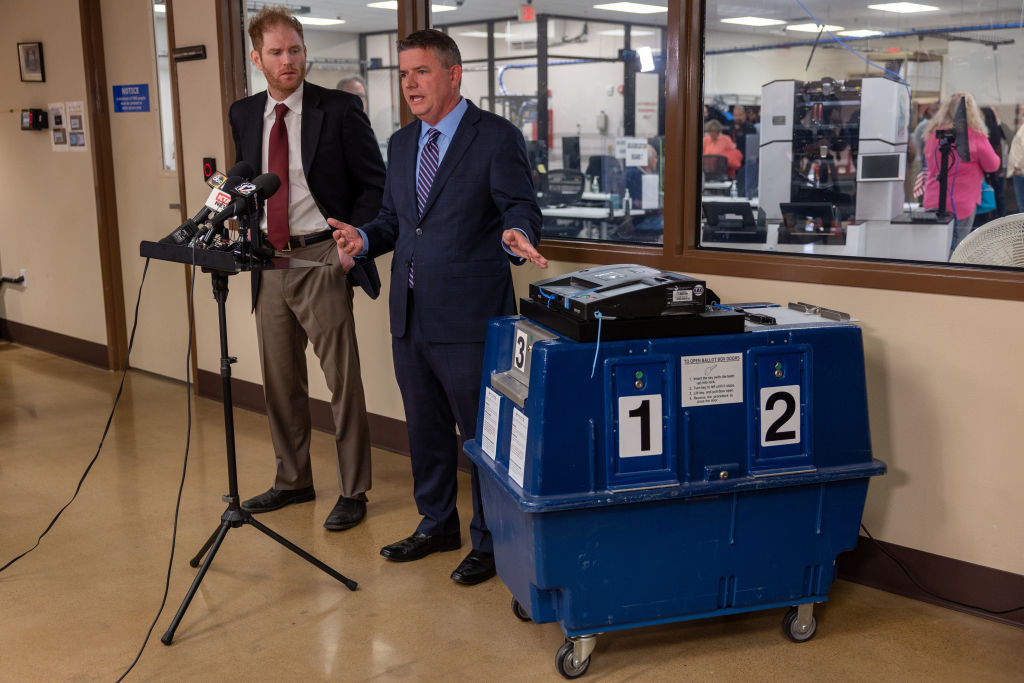Voting machine malfunctions on Election Day in Arizona led to a conspiracy theory that some form of election stealing or disenfranchisement was taking place to prevent Republicans from winning in the state.
There was a widespread voting machine error in Maricopa County, the largest county in the state, that affected 60 of the county’s 223 voting locations early on Election Day. Maricopa officials said they discovered the error was not in the tabulating machines, but in the printers producing the ballots—insufficient ink was being used, prompting the tabulator to reject them. Rejected ballots were put in a lockbox attached to the tabulating machines to ensure that they were counted later, and voting officials encouraged voters to go to other locations if they were uncomfortable with voting in this manner.
After reviewing the situation in Maricopa, a senior Cybersecurity and Infrastructure Security Agency official said in a briefing that there was no reason to believe there was any election interference at play with the malfunctions: “We’ve seen no activity that should cause anyone to question the security, integrity, or resilience of our election infrastructure.”
There is, in short, no evidence to suggest that what occurred in Maricopa County was anything other than a machine error nor that there is any reason to believe that the error will prevent any ballots from being counted.
Similar baseless claims were made during the 2020 election, when conspiracy theories sprang up about Sharpies being used to invalidate ballots, fraudulent mail-in ballots, and discarded ballots.
If you have a claim you would like to see us fact check, please send us an email at factcheck@thedispatch.com. If you would like to suggest a correction to this piece or any other Dispatch article, please email corrections@thedispatch.com.







Please note that we at The Dispatch hold ourselves, our work, and our commenters to a higher standard than other places on the internet. We welcome comments that foster genuine debate or discussion—including comments critical of us or our work—but responses that include ad hominem attacks on fellow Dispatch members or are intended to stoke fear and anger may be moderated.
With your membership, you only have the ability to comment on The Morning Dispatch articles. Consider upgrading to join the conversation everywhere.